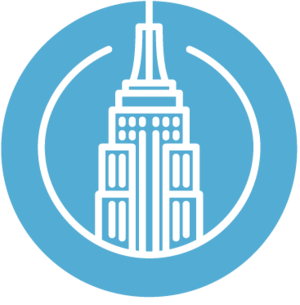How Maven’s Kate Ryder turned her women’s and family health startup into a unicorn
Kate Ryder, Founder and CEO, Maven
Ask any new parent: those first few months are rough. No sleep, and even worse, no idea what you’re doing. When it comes to getting answers, it’s not always straightforward. Your pediatrician tells you that you need to hire a separate lactation consultant. Your fertility doctor hands you off to a genetic counselor. It takes time to set up appointments and search for healthcare providers within your insurance network who meet your needs. Often, desperate new parents resort to independent googling to find answers fast, with mixed results. What families need is a team of experts at their fingertips 24/7. Until Maven, that simply didn’t exist.
According to a Department of Labor study, mothers in the U.S. make approximately 80% of the healthcare decisions for their children, and they are more likely to be the caregivers when a child falls ill. Despite this, gender bias continues to be a major problem in healthcare. A survey conducted by TODAY found that more than half of women believe gender discrimination in patient care is a serious problem, with many women reporting that doctors ignore or dismiss their symptoms based on their gender.
Families need a better spectrum of care, and women in particular need better access to healthcare providers that specialize in their unique needs. Maven, which was founded in 2014 when telemedicine was first starting to take off, aspires to solve both of these problems, helping millions find support in areas like fertility, pregnancy, adoption, parenting, and pediatrics.
Maven founder and CEO Kate Ryder joined Scarlet Fu, Bloomberg Television and Bloomberg QuickTake host, for an online talk on Thursday, September 30, as part of the Cornell Tech @ Bloomberg Speaker Series. She shared the story of her career transition from journalism to venture capitalist to entrepreneurship, the birth of her startup, and the lessons she’s learned on the road to building a company valued at more than $1 billion.
Watch the full discussion:
From journalist to CEO
Ryder is a born storyteller, having begun her career as a journalist, writing about finance and business. One of her earliest breaks was ghostwriting the memoir of former U.S. Treasury Secretary Hank Paulson, which dealt with Paulson’s experience during the financial crisis of 2008.
“So much about entrepreneurship is figuring out the signal in the noise,” says Ryder, comparing her recent career as a CEO to her start in journalism. For her, teasing out the narrative in a piece of reporting is a similar skill to finding the right business model to address a market demand. Once you find that signal, you build the product or write the story.
After completing Paulson’s memoir, Ryder decamped to Southeast Asia, where she served as a journalist for The Economist and The Wall Street Journal. From there she transitioned into venture capital, another industry where being able to spot the trends with staying power has outsized importance.
Her experience on the VC side of the table would come in handy when she would later pitch investors on the idea that would become Maven.
As Maven’s business has scaled, Ryder’s storytelling impulses have served her well, whether it’s attracting talent and investors, closing sales, or building a brand identity. All of these functions require Ryder to build a compelling narrative around the need for better healthcare options for women and their families.
Finding the Maven story
Ryder’s story for Maven goes like this: When her friends started to have kids, she saw something had to change. Having a child was a monumental event, she believed, affecting a woman’s body, their personal life, and their professional life. But there was limited support outside of parental leave from an employer, leaving new parents to navigate an intense, complex period on their own. It was especially challenging for first-time mothers, many of whom have chosen to leave the workforce altogether.
“This is where so much happens that creates gender inequality,” says Ryder. “It’s one of the most vulnerable times that so many people go through.”
She came to believe that the period of early family planning was something our society and employers, in particular, don’t sufficiently prepare new parents for. “It’s one of the most pivotal healthcare moments,” she says. “If you can get women’s and family health right, you can get better downstream healthcare outcomes across all of society.”
In many companies, women are entitled to state-mandated maternity leave minimums, and then it’s “back to work.” Maven is aiming to change the narrative around pregnancy leave, to highlight the importance of healthcare components like fertility, lactation, postpartum mental health support, and pediatric care, so that employers can help their employees manage the entirety of their experience as new parents.
Pregnancy, childbirth, and early parenthood are complicated and fraught with difficult decisions that can make parents feel stuck or alone. Maven’s virtual platform includes more than 30 types of providers, many of whom — like genetic counselors, lactation consultants, midwives, and doulas — are difficult to find in a typical insurance network. On top of offering 24/7 availability to this wide range of experts, Maven offers every user a personal Care Advocate, or navigator, who connects patients to in-person care, whether that be fertility clinics, OBs, or other community-based resources.
Maven aims to build a care team around each customer, so they can connect to the right expert in minutes, no matter where they are. Maven experts can be made available at odd hours, even in the middle of the night when other types of care might not be available. Because of the company’s digital model, care is more easily individualized, so that, for example, Spanish speakers can be instantly connected to Spanish-speaking care providers. 90 percent of Maven’s providers are women, many of whom are moms themselves. Ryder touts the compassion and empathy that this preponderance of female experts brings to the platform.
Maven’s corporate and health plan clients sponsor free memberships in the service. But anyone can download the Maven app to find care on an individual basis.
“Our core mission is access, and we wanted to always make sure that anyone can have access at any time,” says Ryder. Some services are cheaper than a typical insurer’s co-pay.
Maven began as a direct-to-consumer business, and this experience dealing directly with customers and coming to understand their needs has enabled Maven to go to employers with a compelling pitch: We know what your employees are looking for, and we can help you help them find that care. As a service that patients use frequently, Maven is then able to help employers with their own goals of retaining their working parents and lowering costs.
The next milestone
The pandemic brought telemedicine into the mainstream. In a world where hospitals were suspending services due to shortages of PPE and COVID-19 infection risks, Maven was spinning up more capacity to meet the spike in demand for remote care. Maven’s early positioning in the space has served them well over the last two years. Among other major partnerships, MassHealth, the Massachusetts, Medicaid, and the Children’s Health Insurance Program partnered with Maven to provide free telemedicine appointments for members experiencing COVID-19 symptoms, enabling them to readily set up remote appointments without exposing providers to infection risk.
Maven raised $110 million in August in a Series D financing round, at a valuation at over $1 billion, officially making it the only U.S. unicorn in the women’s and family health sector. Dragoneer Investment Group and Lux Capital co-led the round, along with an added publicity boost of having Oprah Winfrey as a new backer. The company’s unicorn status has left Ryder feeling humbled.
“Women’s and family health is wide open. This market is just opening right now and to be able to marry the virtual to the brick-and-mortar to develop this new care model that’s totally seamless for the patient — it’s not going to happen overnight, but we have the opportunity to really steer that, and that’s super exciting.”
This article was originally published by Tech at Bloomberg.












